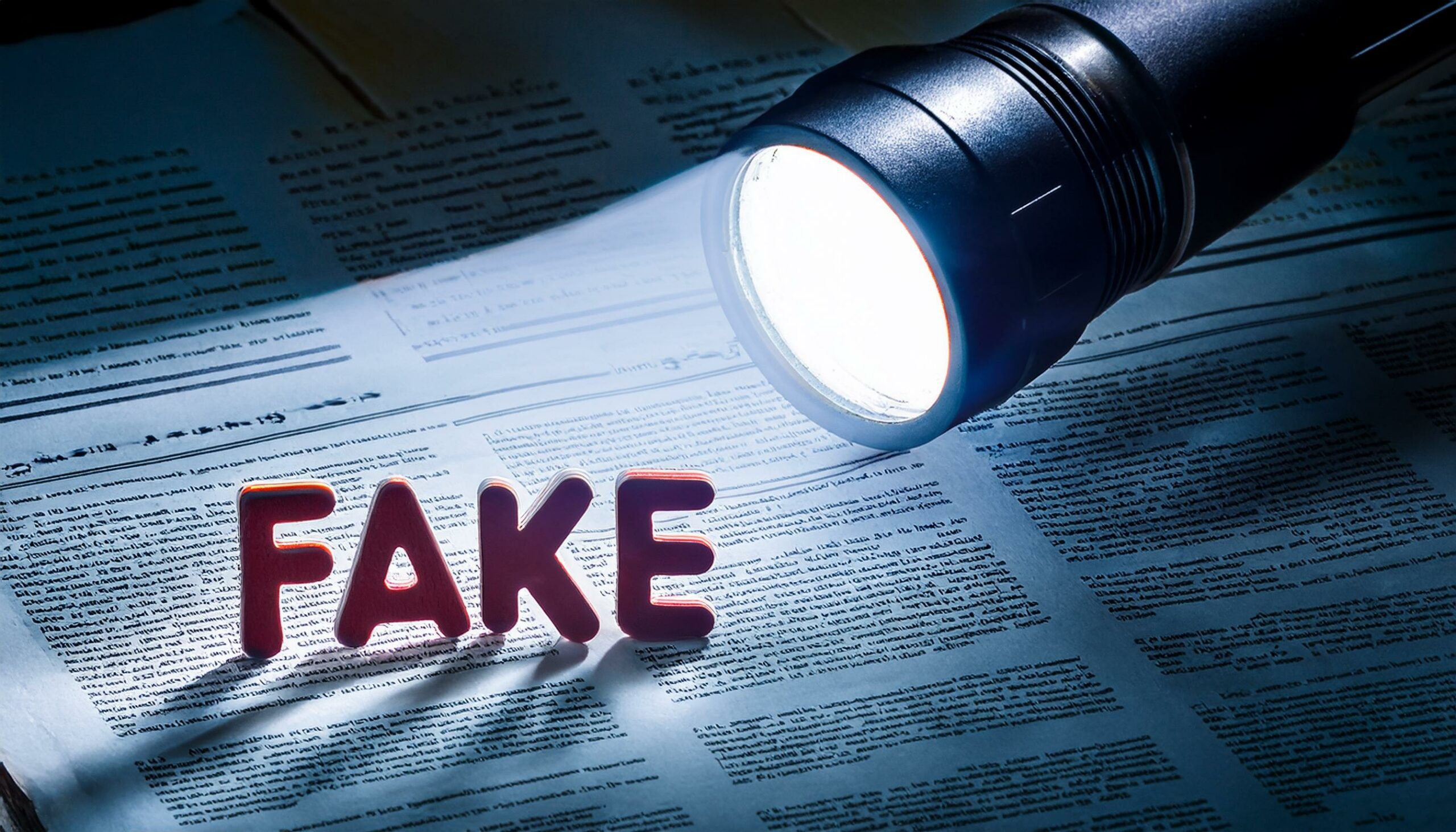Reputation Management Tools: Do They Work and Which Are Best?
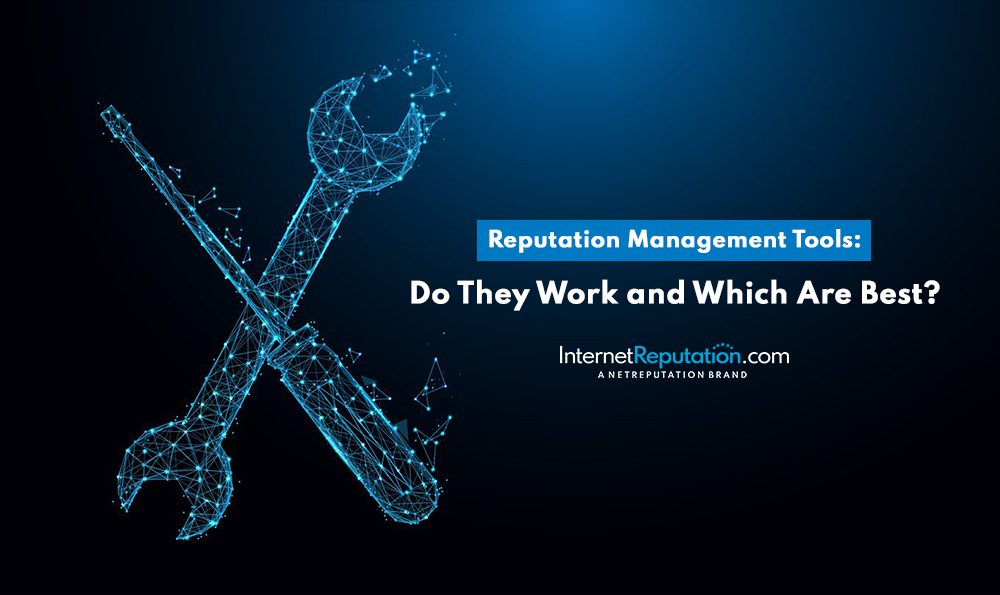
There’s no doubt that online reputation management is important, and reputation management tools put control into your hands. In today’s digital world, your online presence can make or break your business.
Think about it: The last time you looked up a new product or service, did you turn away from the ones that didn’t have the best online presence? That’s why reputation management is so important — so people don’t start turning away from your business and what you have to offer.
But with so many different ORM tools out there, it can be hard to know which ones are actually effective. Do they really work? And if so, which ones are the best?
In this article, we’ll take a look at popular reputation tools and answer your most pressing questions.
What Exactly Does Reputation Management Entail?

In business, your reputation is everything. It’s the collective opinion of past and current customers, employees, partners, and investors about your company.
A strong reputation can be a major competitive advantage. Conversely, a bad reputation can be difficult — and expensive — to fix.
That’s where reputation management comes in.
ORM is the process of tracking, monitoring, and responding to your company’s online reviews and ratings. The goal is to maintain or improve your company’s reputation and standing in the eyes of the public.
To speak with an ORM expert, call us today at 941-259-4554 for a free consultation.
6 Benefits of Reputation Management

An effective reputation strategy can help improve your online visibility, build customer trust and loyalty, and even save you money on marketing and advertising. It also boosts your business listings in the SERPs and earns you more trust in your niche.
Here are a few of the most important benefits of online reputation management:
1. Improved Brand Visibility
Online review sites are one of the first places potential customers look when researching a business. A good brand reputation strategy can help improve your online visibility and give your business an edge over the competition.
2. Increased Customer Trust and Loyalty
Happy customers are more likely to recommend your business to others and come back for repeat business. A strong brand reputation and positive customer feedback can help build trust and loyalty.
3. Enhanced Customer Acquisition and Retention
In today’s competitive landscape, businesses need to do everything they can to attract and retain customers. An effective online reputation strategy can help with both of these objectives.
4. Greater Employee Engagement and Retention
A positive company reputation can also help with employee engagement and retention. Employees are more likely to be proud of and stay with a company that has a good reputation and excellent customer feedback.
5. Reduced Marketing and Advertising Costs
A strong reputation can save you money on marketing and advertising. When customers trust your brand’s reputation, they’re more likely to do business with you without needing a lot of convincing.
6. Improved Crisis Management
Crises can happen at any time, and it’s important to have a plan in place for how to handle them.
20+ Best ORM Tools To Improve Your Brand’s Online Reputation in 2024
Here are our picks for the top online reputation tools for the job.
1. Google Alerts
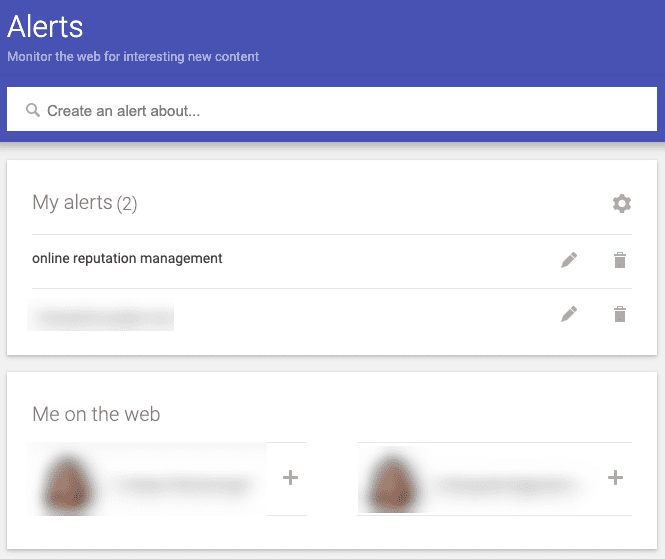
Google Alerts is a free and easy-to-use online reputation management tool that lets you track your company’s name and other keywords online. You can receive regular email updates on any new results that match your keywords.
2. Social Mention
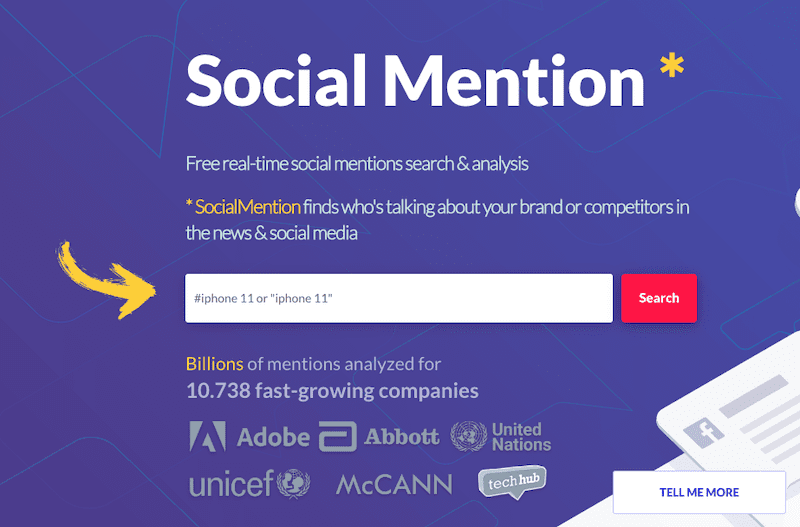
Social Mention from BrandMentions is a free social media monitoring tool that lets you track any company or keyword on over 100 social sites. It also provides real-time results and analytics.
BrandMentions is also worth looking into if you want to track all mentions of your brand online, not just those on social.
3. Hootsuite
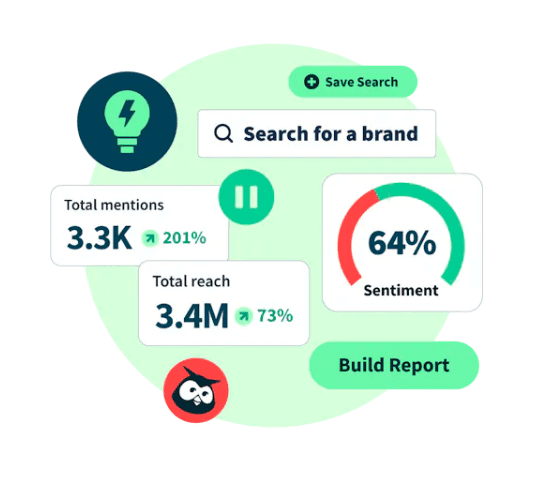
Hootsuite is a popular social media management tool that lets you track all your social media channels in one place. It also provides detailed analytics and valuable insights for each channel.
4. Sprout Social
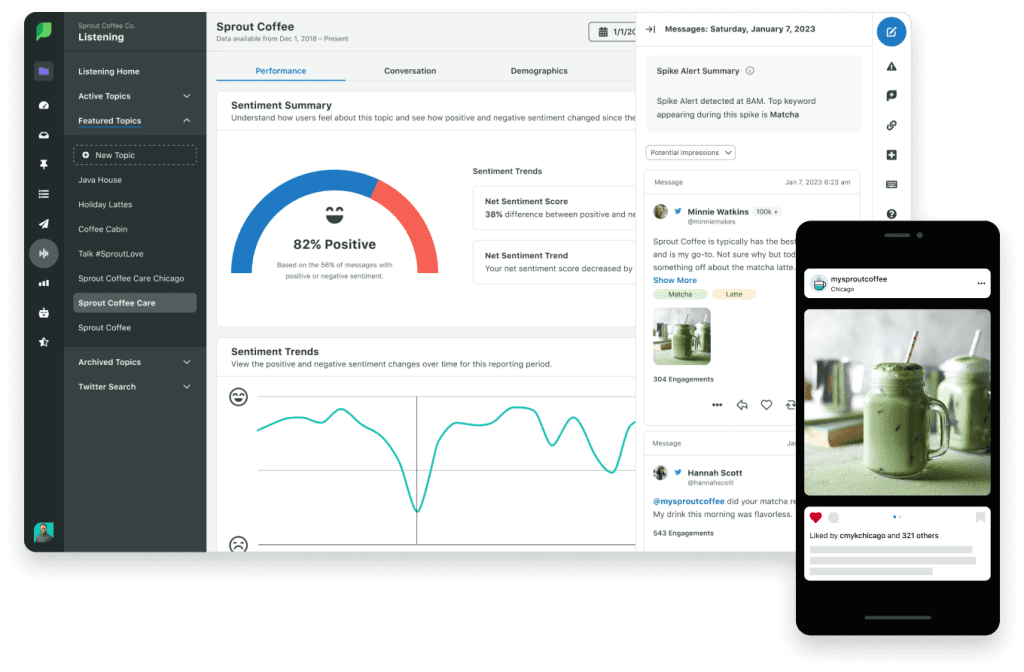
Sprout Social is another popular social media management tool that offers a wide range of features, including monitoring, reporting, and team collaboration tools.
5. Brand24

Brand24 is a social media tool that lets you track your brand and competitor brands on social. It also provides real-time results and analytics.
6. Meltwater
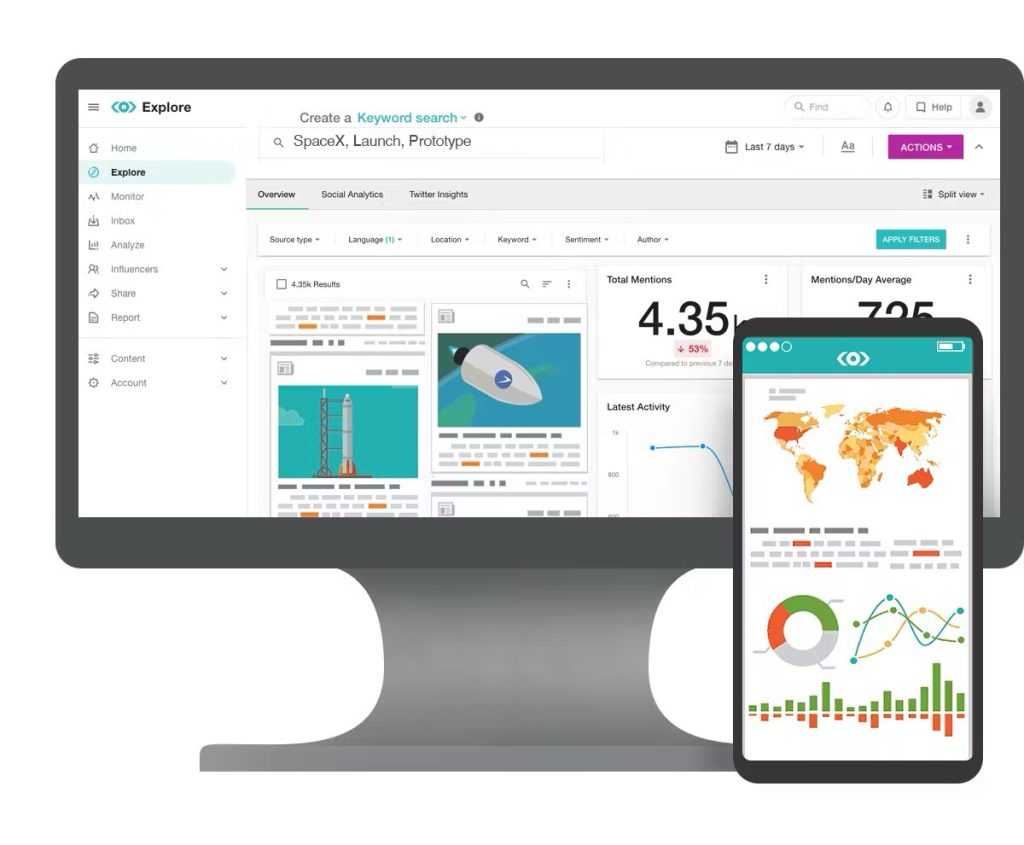
Meltwater has a media monitoring tool that lets you track any company or keyword in over 100,000 news sources. It also offers detailed analytics and reporting for online reputation management.
7. SEOToolSet
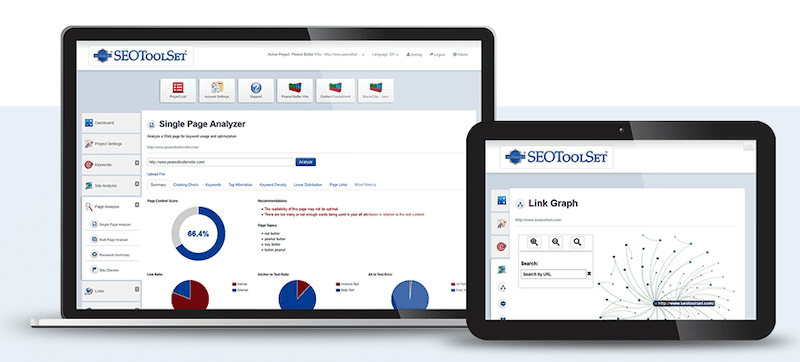
SEOToolSet is useful for SERM. It is a suite of SEO tools that includes an online reputation management tool as well. It lets you track your company’s name and other keywords in search engines, social media platforms, and other online venues.
8. Moz
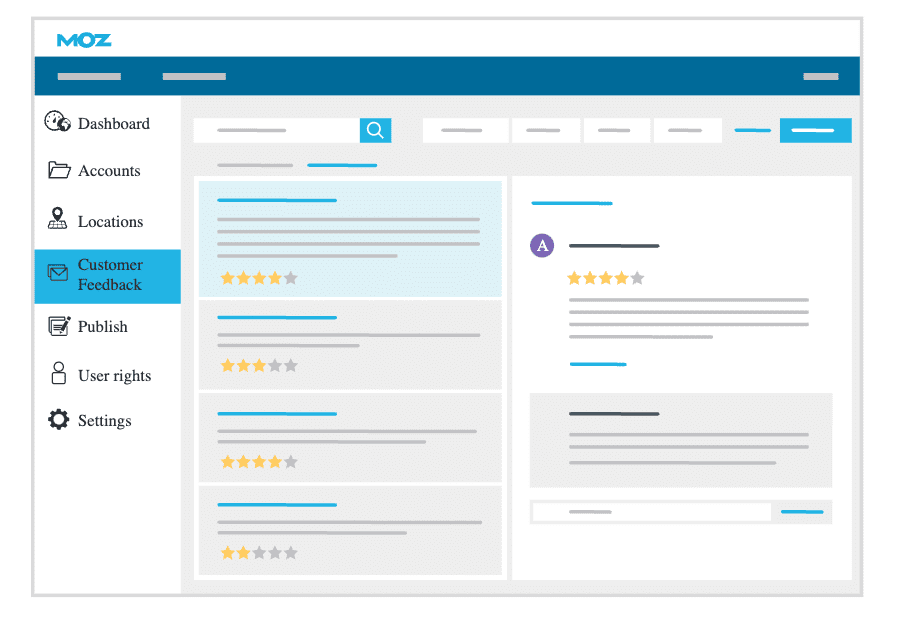
Moz is an all-in-one SEO tool that includes online reputation monitoring tools. It lets you track your company’s name and other keywords in search engines, social, and other online venues.
There’s also the MozBar web browser extension that lets you track your brand’s online presence. It provides insights into website traffic, social media engagement, and online buzz.
9. Raven Tools
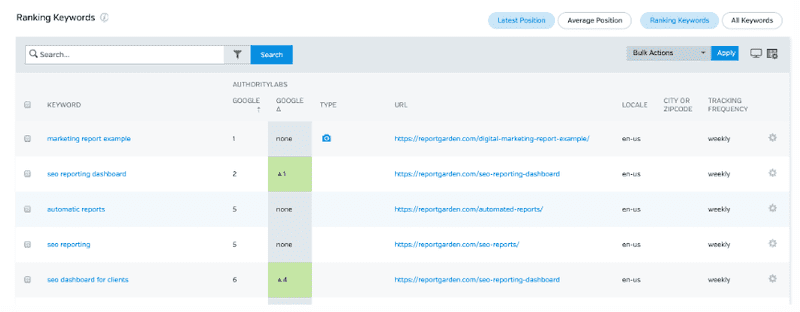
Raven Tools is a suite of SEO and marketing tools. It lets you track your company’s name and other keywords in search engines, social media, and other online venues.
10. Yext
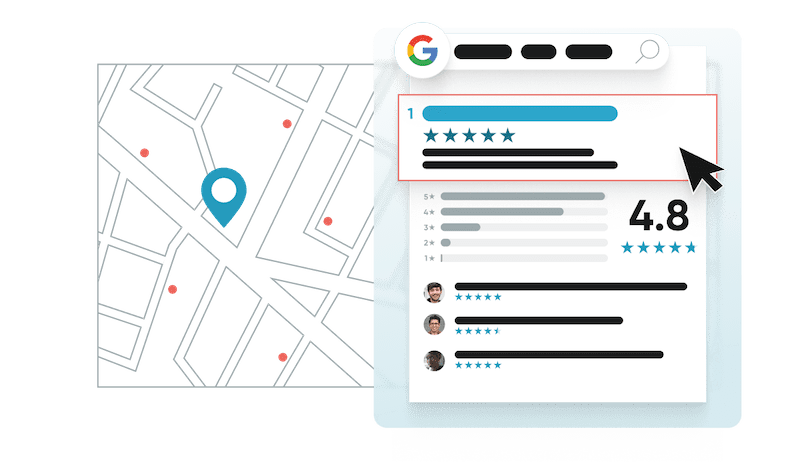
Yext lets you track your company’s name and other keywords across the web. It also offers detailed analytics and reporting.
11. BuzzSumo
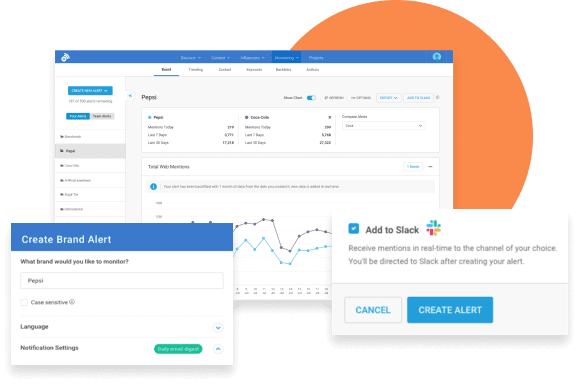
BuzzSumo is a social monitoring tool that lets you track any company or keyword on social media. It also provides real-time results and analytics.
12. Mention
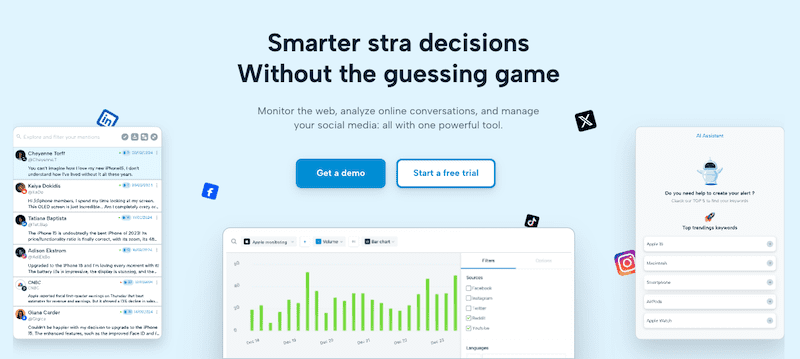
Mention is a free social monitoring tool that lets you track any company or keyword on over 100 social sites. It also provides real-time results and analytics.
There’s also The Brand Grader from Mention, a web analytics tool that lets you track your brand’s online presence. It provides insights into website traffic, social media engagement, and online buzz.
13. GatherUp
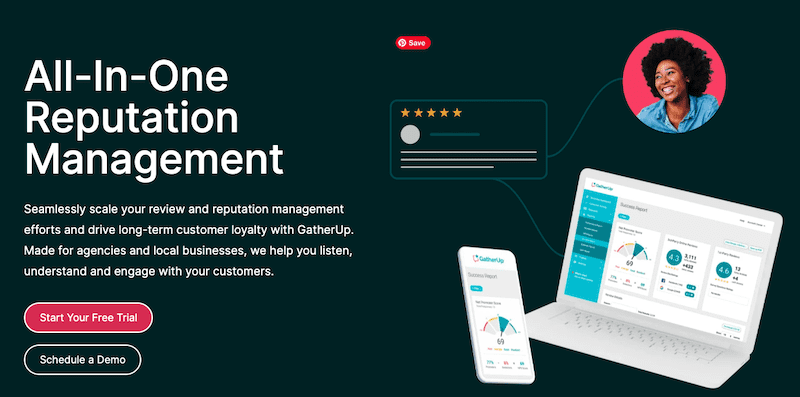
Formerly GetFiveStars, GatherUp is online reputation management software that puts customer feedback and reviews in one place. Features include automated outreach to encourage reviews, the ability to respond to comments, and spotlighting stellar reviews so potential customers see them.
14. Reputation.com
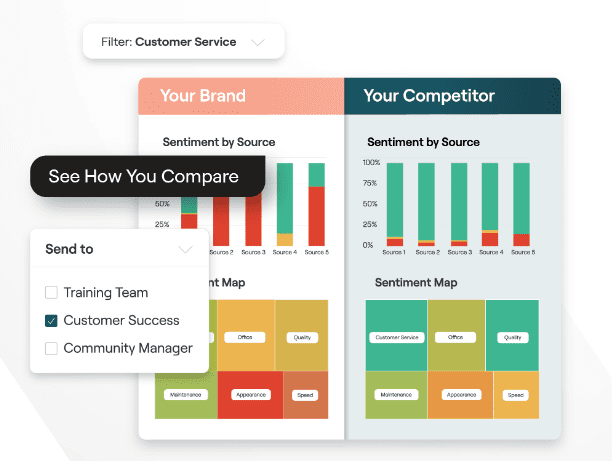
Reputation.com is a comprehensive solution that helps businesses track and improve their brand’s online reputation. It offers a wide range of features, including social monitoring, reporting, and team collaboration tools.
15. Brandwatch
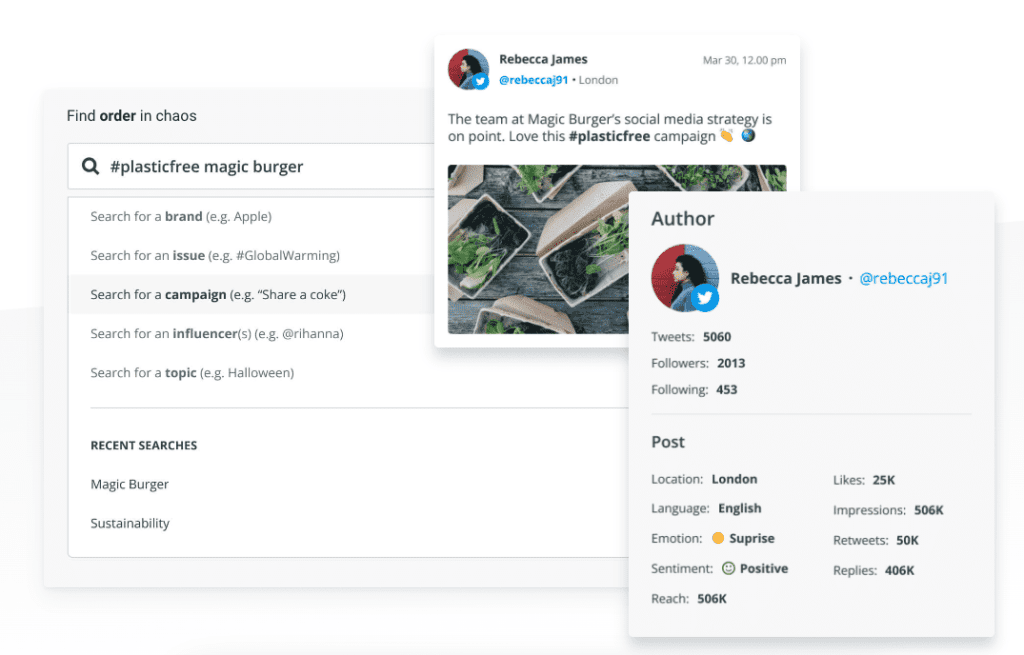
Brandwatch is a social media tool that lets you track your brand and competitor brands on social platforms. It also provides real-time results and analytics.
16. Brand Yourself

Brand Yourself reputation management software offers a wide range of features, including social monitoring, reporting, and team collaboration tools.
17. Reputology
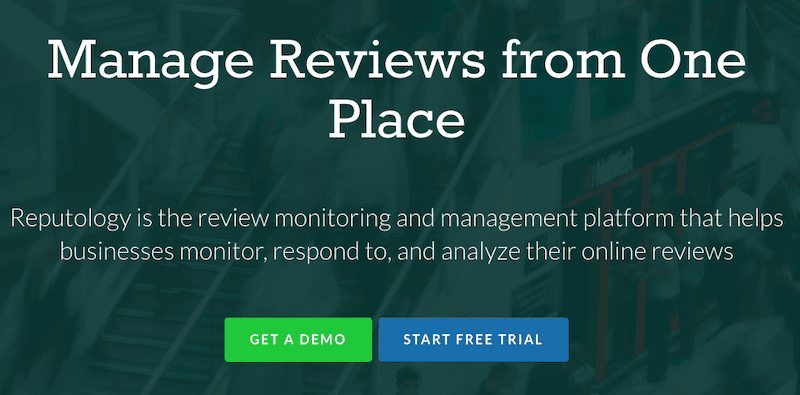
Reputology is a tool that helps businesses track and improve their online reputations. It offers a variety of features, including social monitoring, reporting, and team collaboration tools.
18. Keyhole
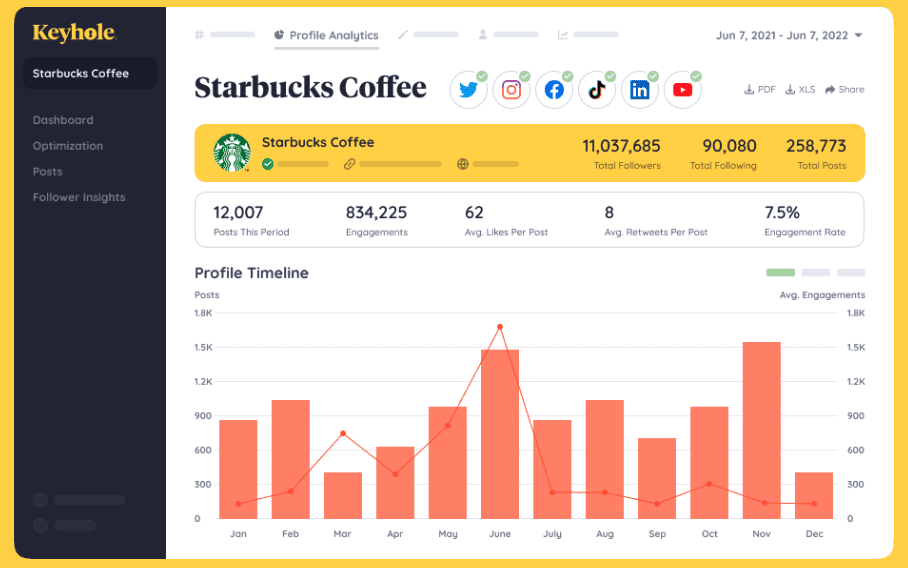
Keyhole is a social monitoring tool that lets you track any company or keyword on social sites. It also provides real-time results and analytics.
19. Similarweb

Similarweb is a web analytics tool that lets you track any website or app. It provides detailed insights into website traffic, user engagement, and marketing effectiveness.
20. Digimind
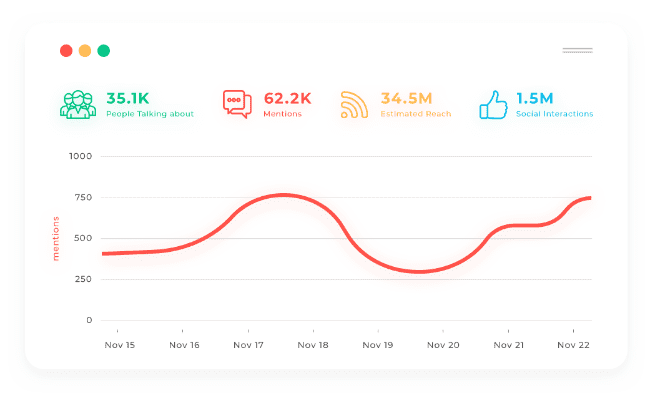
Digimind is a social monitoring tool that lets you track your brand and competitor brands on social media. It also provides real-time results and analytics.
21. YouScan

YouScan is a social media tool that lets you track any company or keyword on social media. It also provides real-time results and analytics.
22. ReviewPush
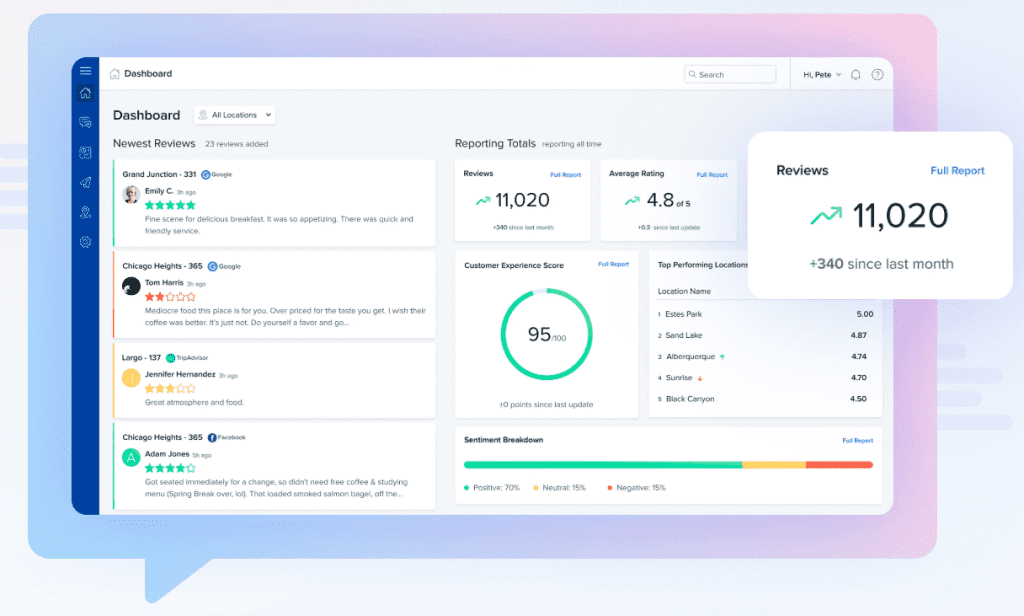
ReviewPush is a tool that helps businesses track and improve their online reviews. It offers a wide range of review management features, including review tracking, reporting, and team collaboration tools.
What Is the Learning Curve of Online Reputation Management Software?
The learning curve of these online reputation management tools depends on the tool you choose. Some tools, such as Google Alerts, are very simple to use and require no setup. Other reputation management software requires a bit more setup but is still relatively easy to use.
The most complex tools, such as Reputology, can be a bit difficult to use for beginners. However, most tools offer online tutorials or support forums that can help you get started.
Which tool is best for you? That depends on your needs and budget.
If you need a simple tool that is easy to use, then Google Alerts or BrandMentions are good choices. If you need a more powerful tool with more features, then Reputology or GatherUp are good choices.
No matter which tool you choose, the important thing is to start monitoring your online reputation today.
How Much Does an Online Reputation Management Tool Cost?
The pricing of online reputation management tools depends on the tool you choose. Some tools, such as Google Alerts and BrandMentions, are free to use.
Other tools, such as Reputology, offer free plans but also have paid plans with more features.
Typically, the best reputation management software available won’t be free, but if you’re just getting started with online reputation monitoring, you may be able to use a basic tool now and find a more robust one later.
How Often Should You Use Online Reputation Monitoring Tools?
How often you use reputation management software depends on your needs and the tool you choose.
Some tools, such as Google Alerts, can be used daily to track your brand’s online presence. Other tools, such as Reputology, can be used weekly or monthly to track your online reputation.
It is important to remember that online reputation can change rapidly, so check your reputation regularly. Online reputation monitoring tools can automate a lot of that for you.
Do Reputation Management Tools Work?
The answer to this question depends on the tool you choose. Some tools, such as Google Alerts, are very simple and work well for basic tracking needs. Other tools, such as Reputology, offer more features and work well for more complex management needs.
In general, they can be very helpful in managing your online reputation. However, it’s important to remember that even the best reputation management software can’t guarantee perfect results.
9 Reasons to Incorporate Online Reputation Tools Into Your Marketing Strategy
There are many reasons to incorporate a management tool into your marketing strategy. Some of the benefits include:
- Improved visibility online
- Increased website traffic
- Enhanced engagement on social media platforms
- Improved customer satisfaction
- Increased brand awareness
- Improved search engine rankings
- Reduced online defamation
- Better customer service
- Improved brand reputation
What Are the Components of Reputation Management Software?
The components of online reputation management software vary depending on the tool you choose. However, most tools include some or all of the following features:
- Review Management and Monitoring: This feature allows you to track and monitor online reviews of your business. This can include industry-specific review sites and Google reviews, and it can also help you remove fake reviews.
- Reporting and Analytics: This feature allows you to generate reports about your online reputation.
- Team Management: Unless you’re a solopreneur, you’ll want reputation management software that the whole team can use.
- Brand Monitoring: This feature allows you to track your own brand and competitors for brand mentions. In addition to Google results, social media platforms and major review sites will also be monitored. Real-time results and analytics are also included.
- Sentiment Analysis: This feature allows you to track the overall sentiment of online brand mentions for your company.
- Crisis Management: This feature allows you to create a plan for handling negative online mentions of your brand.
- Reputation Scoring: This feature assigns a score to your online reputation, which can help you track and improve it over time.
- Email Alerts: This feature allows you to receive email alerts when there are new online mentions of your brand.
- Customizable Settings: This feature allows you to customize the tool to suit your specific needs.
Knowing which features you need can help you narrow down your options and pick the best tool for improving your brand’s reputation.
How Can I Monitor My Reputation Online?
There are many ways to monitor your online reputation. One way is to use a tool such as Google Alerts or Reputology.
Reputation management software allows you to track online mentions of your brand and generate reports. You can also use social monitoring tools to track your brand on social media.
Another way to monitor your reputation is to manually search for your brand name on a regular basis. This allows you to see what people are saying about your brand online and take action if necessary.
What Are the Risks of Not Having a Reputation Management Strategy?
There are many risks associated with not having a reputation management strategy. These risks include:
- Poor visibility online
- Low website traffic
- Lower engagement
- Dissatisfaction
- Increased negative reviews
- Decreased search engine rankings
- Defamation
- Reduced website traffic
- Poor customer service
- Damaged reputation
In general, neglecting to have a strategy in place can do irreparable damage to your brand’s reputation.
What Are the KPIs for Online Reputation Management?
There are many KPIs for reputation management. Some of the most important KPIs include:
- Overall sentiment
- Volume of online mentions
- Quality of online mentions
- Top sites where mentions occur
- Types of media where mentions occur
- Location of online mentions
- Sentiment of online mentions
- Engagement with online mentions
- Actions taken in response to online mentions
- Changes in KPIs over time
Instead of trying to track multiple KPIs at once, select up to three to monitor and improve for the time being.
What Is the Best Way to Handle Negative Online Reviews?
The best way to handle negative reviews is to respond to them in a timely and professional manner. This shows that you are taking the customer’s feedback seriously and are working to improve your business. It is also important to create a positive online presence for your brand, which can help drown out the negative reviews.
What Is the Difference Between Online Reputation Management and Reputation Monitoring?
Online reputation management is the process of tracking and managing your online presence, including reviews, social media platforms, and brand mentions.
Reputation monitoring is the process of tracking online mentions of your brand.
It is important to use both reputation management and reputation monitoring to get a complete picture.
What Is the Difference Between Reputation Management and Crisis Management?
Crisis management is the process of responding to a negative event that has already occurred, such as a natural disaster or data breach.
Online reputation management is the process of tracking and managing your online presence, including reviews, social media, and brand mentions.
It is important to use both online reputation management and crisis management to protect your company’s reputation.
How To Restore Your Brand’s Reputation After a Crisis
A crisis can damage a company’s reputation significantly. If you have been affected by a crisis, there are several things you can do to restore your brand reputation:
- Respond to the crisis in a timely and professional manner.
- Apologize for the crisis and take responsibility for it.
- Address the concerns of customers and stakeholders.
- Take action to prevent the crisis from happening again.
- Promote your company’s strengths and positive attributes.
- Build relationships with key people and organizations.
- Monitor your online reputation closely.
- Take action if necessary.
- Celebrate your successes along the way.
- Maintain a positive attitude.
Hiring experts with reputational crisis experience can be invaluable during an event like this. Contact us at 941-259-4554 if you need help navigating or rebounding from a PR crisis.
Finding Time for ORM and Hiring Experts
Without the time to dedicate to ORM, you can have all of these tools at your fingertips but not be able to use them to their fullest extent.
In this case, you can hire a reputation management company to help you. They can take care of all the aspects related to growing your reputation online.
How Can a Reputation Management Company Help?
A reputation management company can help you in many ways:
- Tracking your online presence and managing your reputation.
- Responding to reviews and addressing customer concerns.
- Developing a positive online presence for your brand.
- Monitoring online mentions of your brand and taking action if necessary.
- Providing expert advice and support.
- Helping you to restore your reputation after a crisis.
- Providing a wide range of services to help you manage your reputation.
- Offering a cost-effective solution.
You can discuss a custom ORM strategy with a reputation expert by calling 941-259-4554 today.
What Is the Cost of Reputation Management?
The cost of reputation management will vary depending on the size and complexity of your business, the company you choose, and the services you require. Typically, the cost will be a monthly fee plus a one-time setup fee.
What Is the Process of Reputation Management?
The process of reputation management typically includes the following steps:
- Assessment: The first step is to assess your current online reputation and identify the areas that need work.
- Strategy: The next step is to develop a strategy based on your needs and objectives.
- Implementation: The third step is to implement the strategy, which may include online marketing, public relations, and social media.
- Evaluation: The fourth step is to evaluate the results of the campaign and make changes as needed.
Learn more about our process here.
Wrapping It Up
Reputation management is a critical part of any business. It can help you build a positive online presence, monitor your brand, and take action when necessary. There are many tools available to help you with reputation management, but it is important to choose the right ones for your business and learn how to use them effectively.
A reputable company can offer a wide range of services to help you manage your reputation like a pro. The cost will vary depending on the size and complexity of your business, but it typically includes a monthly fee plus a one-time setup fee.
The process of reputation management includes assessment, strategy, implementation, and evaluation. It is important to monitor your online reputation regularly and take action if necessary. By using the right tools and strategies, you can protect and grow your company’s reputation.
Contact us today at 941-259-4554 to discuss your custom ORM strategy.

